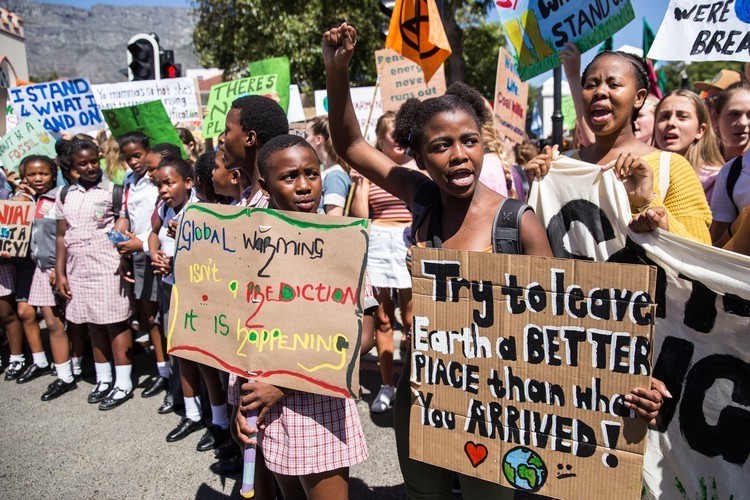By Lisa Vives, Global Information Network
NEW YORK | SHARM EL-SHEIKH (IDN) — Some civil rights activists suspect this year’s UN climate conference, held in a country reputed for holding thousands of political prisoners, will give the host country a great opportunity to remake its image and position itself as the voice for the Global South.
In fact, Egypt is facing a barrage of criticism over what rights groups say is a crackdown on protests and activists.
Egyptian journalist Sharif Abdel Kouddous shared some of these concerns with American peace activist Medea Benjamin who wanted to know how repressed civil society leaders view Egypt playing host to COP27.
“It was very disheartening for a lot of people in Egypt who work for human rights and justice and democracy when Egypt was granted the right to host the conference. But Egyptian civil society has not called on the international community to boycott the COP meeting; they have called for the plight of political prisoners and the lack of human rights to be linked to the climate discussions and not ignored,” responded Abdel Kouddous.
“They want a spotlight to be placed on the thousands of political prisoners like Alaa, like Abdel Moneim Aboul Foitouh, a former presidential candidate, and others.”
“The issue of climate reparations to the Global South is very important. It needs to be discussed and taken seriously. But how can you give climate reparations to a country like Egypt when you know the money will mostly be spent on bolstering this repressive, polluting state? As Naomi Klein said in “Greenwashing a Police State”, the summit is going beyond greenwashing a polluting state to greenwashing a police state,” he observed.
“I think what we are going to see in Sharm el-Sheik is a carefully managed theater. We all know the problems with the UN Climate Summits. There are a lot of negotiations and climate diplomacy, but rarely do they amount to anything concrete and binding.
“But they do serve as an important place for networking and convergence for different groups in the climate justice movement, an opportunity for them to come together to organize.”
This year, protests will only be allowed out near a highway, far away from the conference center and any signs of life… “This is why people like Greta Thunberg are not going.”
More importantly, members of Egyptian civil society, including the allies and environmental groups that are critical of the government, will not be allowed to attend.
Environmental issues that will be allowed are issues such as trash collection, recycling, renewable energy and climate finance, which is a big issue for Egypt and for the Global South.
Environmental issues that implicate the government and military will not be tolerated – such as coal mining, oil and gas production and exports.
For Richard Pearshouse, environment director at Human Rights Watch, human rights and climate justice are inextricably linked. “The international community is facing a dilemma,” he said. “How do we engage on global climate policies in a country where there is severe repression of civil society?”
The official Cop27 app, which has already been downloaded more than 5,000 times, requires sweeping permissions from users before it installs, including the ability for Egypt’s ministry of communications and information technology to view emails, scour photos and determine users’ locations.
“This is a cartoon super-villain of an app,” said Gennie Gebhart, the Electronic Frontier Foundation’s advocacy director. “The biggest red flag is the number of permissions required, which is unnecessary for the operation of the app and suggests they are trying to surveil attendees.
Their concerns were echoed by Hossam Baghat, head of the Egyptian Initiative for Personal Rights, who tweeted a screenshot of the app’s terms and conditions that read: “Our application reserves the right to access customer accounts for technical and administrative purposes and for security reasons.”
The Egyptian government also blocks online access to over 500 websites, including the country’s lone independent news outlet Mada Masr, using technology provided by the Canadian company Sandvine.
According to rights groups, security forces have been setting up checkpoints on Cairo streets, stopping people and searching their phones to find anything related to planned protests.
The Egyptian Commission for Rights and Freedoms, an NGO, said that 93 people had been arrested – some of whom allegedly sent videos calling for protests over social messaging apps.
Indian climate activist Ajit Rajagopal was detained after setting off on a protest walk from the Egyptian capital to Sharm el-Sheikh.
Separately, a group of five independent human rights experts, all of them UN special rapporteurs, published a statement denouncing restrictions ahead of the summit. They said the Egyptian government had placed strict limits on who can participate in the talks, and that “a wave of government restrictions on participation raised fears of reprisals against activists.”
In a departure from UN rules, those groups that manage to participate will have been vetted and approved by the government and will have to be very careful about how they operate. Other Egyptians who should be there are unfortunately in prison or are subject to various forms of repression and harassment. [IDN-InDepthNews — 07 November 2022]
Photo: Climate Strike by Students. Source: Global Information Network
IDN is the flagship agency of the Non-profit International Press Syndicate.
This article is published under the Creative Commons Attribution 4.0 International licence. You are free to share, remix, tweak and build upon it non-commercially. Please give due credit.

